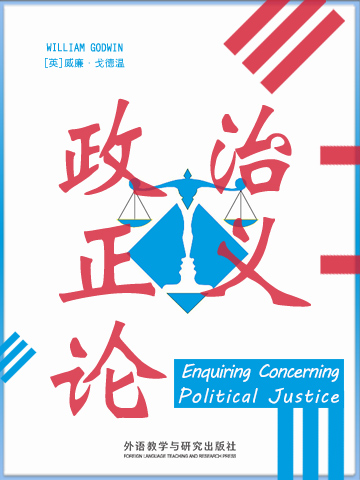政府,是个强制的问题而不是个同意的问题。(威廉•戈德温)
Political Justice was revered by the first generation of Romantic poets, such as William Wordsworth and Samuel Taylor Coleridge, although they would later turn away from radicalism. However, as Romantic scholar Andrew McCann explains, "it is in the radicalism of Percy Shelley's work that Godwin's thinking exerted its greatest influence on the Romantic movement, and ... Shelley's work was most central to the resurgence of radical sentiment after the end of the Napoleonic Wars."
本书体现了18世纪哲学家威廉•戈德温的政治哲学理念,作者在正式落笔前两年已开始构思。本书并没有包含该时期具体的政治事件,而是关注事件背后的哲学原理。作者最后成为激进派受人尊敬的领军人物,其中部分原因也来自此书。
Enquiry Concerning Political Justice and its Influence on Morals and Happiness (1793) outlines the political philosophy of the 18th-century philosopher William Godwin. Despite being published during the French Revolution, the French Revolutionary Wars, and the lead up to the 1794 Treason Trials in Britain, Political Justice argues that humanity will inevitably progress: it argues for human perfectibility and enlightenment. McCann explains that "Political Justice is ... first and foremost a critique of political institutions. Its vision of human perfectibility is anarchist in so far as it sees government and related social practices such as property monopoly, marriage and monarchy as restraining the progress of mankind." Godwin believed that government "insinuates itself into our personal dispositions, and insensibly communicates its own spirit to our private transactions". Instead, Godwin proposes a society in which human beings use their reason to decide the best course of action. The very existence of governments, even those founded through consensus, demonstrates that people cannot yet regulate their conduct by the dictates of reason.
- BOOK I: OF THE POWERS OF MAN CONSIDERED IN HIS SOCIAL CAPACITY
- BOOK II PRINCIPALS OF SOCIETY
- BOOK III PRINCIPLES OF GOVERNMENT
- BOOK IV OF THE OPERATION OF OPINION IN SOCIETIES AND INDIVIDUALS
- BOOK V OF LEGISLATIVE AND EXECUTIVE POWER
- BOOK VI OF OPINION CONSIDERED AS A SUBJECT OF POLITICAL INSTITUTION
- BOOK VII OF CRIMES AND PUNISHMENTS
- BOOK VIII OF PROPERTY





















 京公网安备 11010802032529号
京公网安备 11010802032529号
笔记加载中...